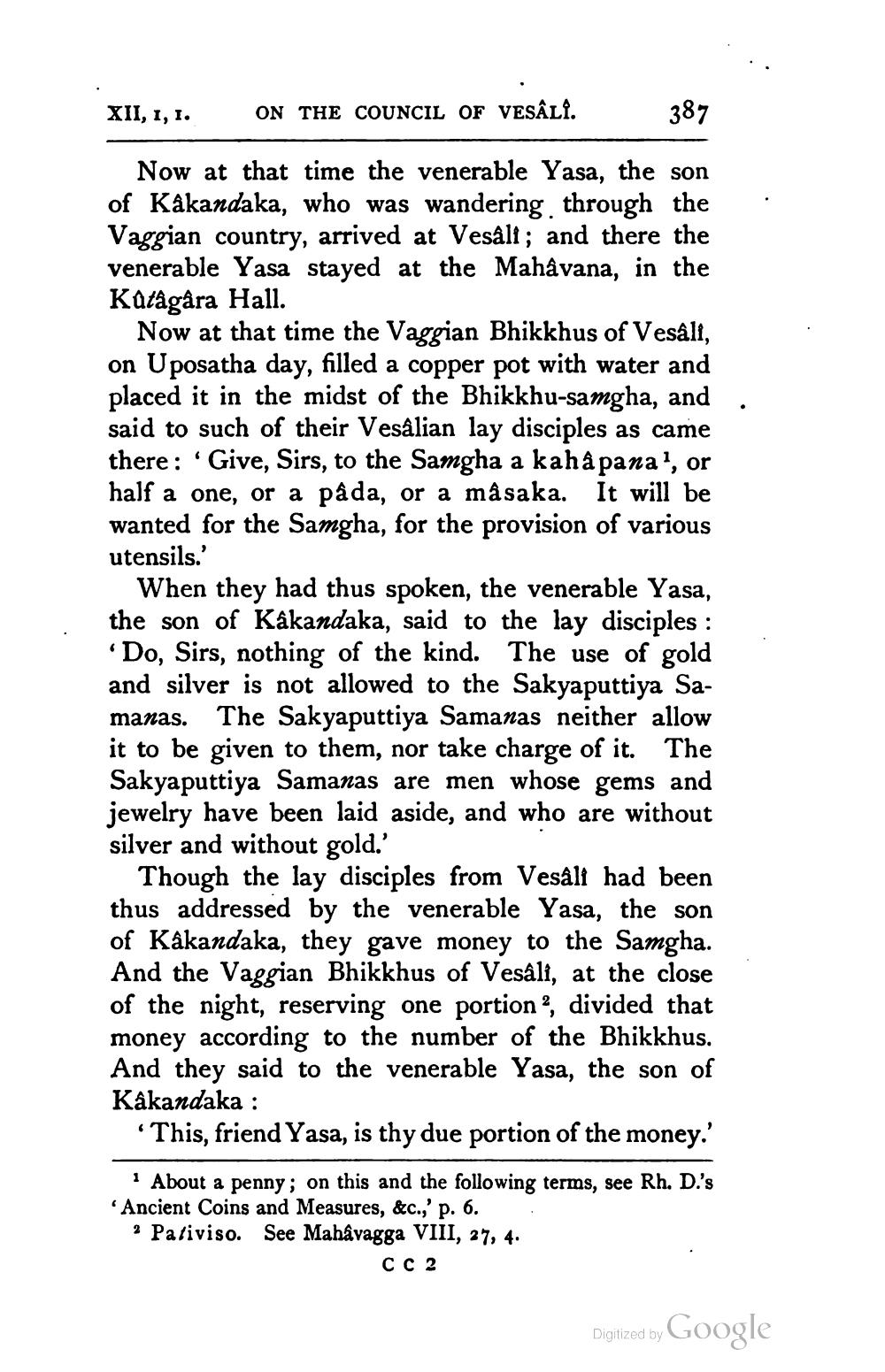________________
XII, 1, 1.
ON THE COUNCIL OF VESÂLÎ.
387
Now at that time the venerable Yasa, the son of Kakandaka, who was wandering through the Vaggian country, arrived at Vesalt; and there the venerable Yasa stayed at the Mahâvana, in the Katagára Hall.
Now at that time the Vaggian Bhikkhus of Vesali, on Uposatha day, filled a copper pot with water and placed it in the midst of the Bhikkhu-samgha, and said to such of their Vesalian lay disciples as came there: 'Give, Sirs, to the Samgha a kahapana', or half a one, or a pâda, or a mâsaka. It will be wanted for the Samgha, for the provision of various utensils.'
When they had thus spoken, the venerable Yasa, the son of Kakandaka, said to the lay disciples : *Do, Sirs, nothing of the kind. The use of gold and silver is not allowed to the Sakyaputtiya Samanas. The Sakyaputtiya Samanas neither allow it to be given to them, nor take charge of it. The Sakyaputtiya Samanas are men whose gems and jewelry have been laid aside, and who are without silver and without gold.'
Though the lay disciples from Vesålt had been thus addressed by the venerable Yasa, the son of Kakandaka, they gave money to the Samgha. And the Vaggian Bhikkhus of Vesâli, at the close of the night, reserving one portion ?, divided that money according to the number of the Bhikkhus. And they said to the venerable Yasa, the son of Kâkandaka :
"This, friend Yasa, is thy due portion of the money.'
About a penny; on this and the following terms, see Rh. D.'s 'Ancient Coins and Measures, &c.,' p. 6. 2 Paliviso. See Mahavagga VIII, 27, 4.
CC 2
Digitized by
Digilzed by Google




